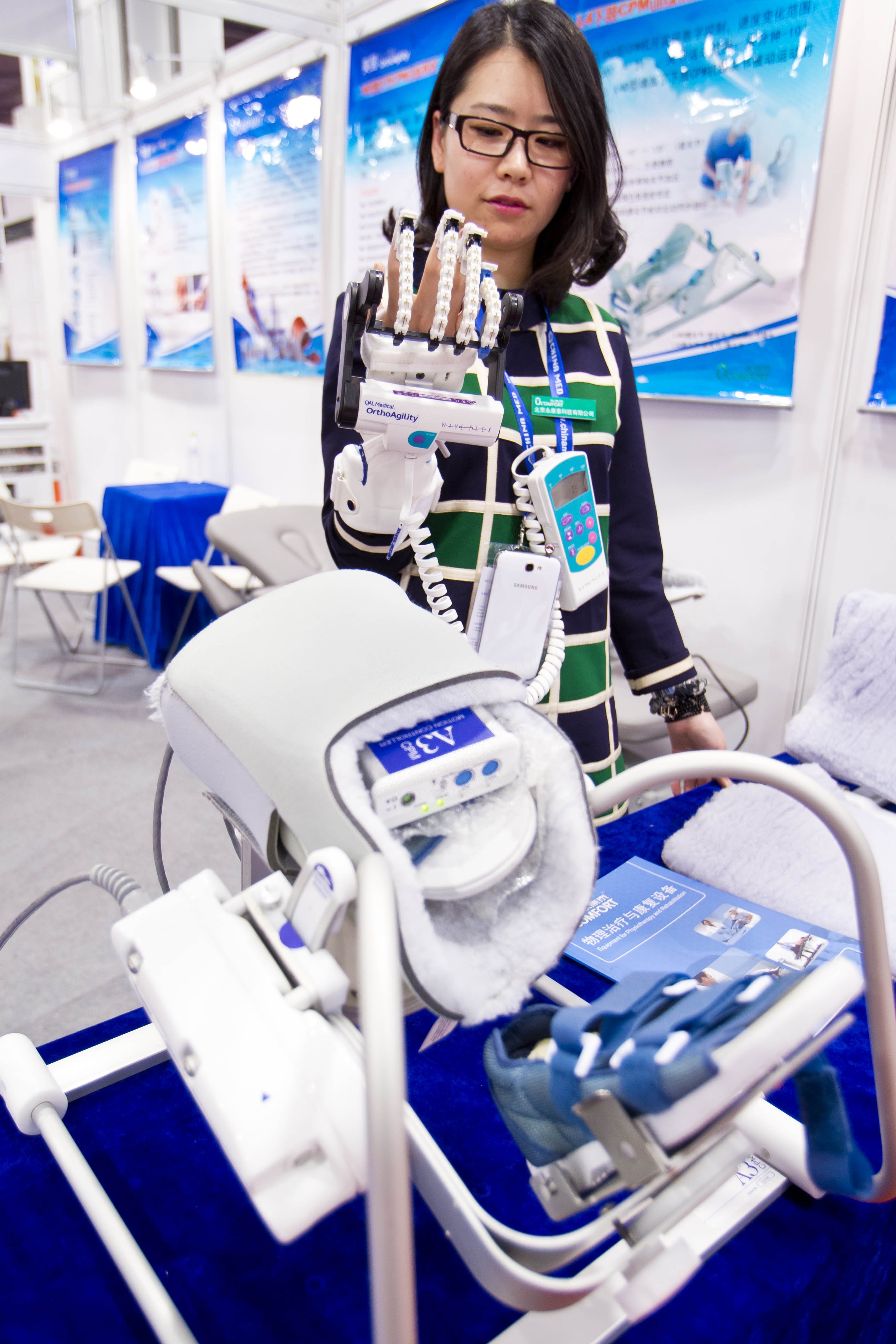World Physiotherapy Day: Towards keeping the world moving freely and without pain
- By Eugene Clark & Lisa Chambers
 0 Comment(s)
0 Comment(s) Print
Print E-mail China.org.cn, September 15, 2018
E-mail China.org.cn, September 15, 2018

September 8th each year is World Physiotherapy Day, when communities all over the world celebrate the important role physiotherapists play in improving the life of patients and all those around them.
Physiotherapists are medical professionals whose training, expertise and care help patients recover from whatever problem they have experienced, regaining and retaining functionality, especially in their ability to move freely, flexibly and without pain.
Their practice occurs in many contexts: hospitals, rehabilitation centers, private practice rooms, sports fields and training rooms, workplaces, schools, etc. In Australia, for example, it's estimated physios conduct almost 25 million treatments each year, almost equal to the country's population.
The special qualities and training involved in physiotherapy are captured in a popular saying that, "A physical therapist has the brain of a scientist, heart of a humanist and hands of an artist."
The importance of physiotherapy will continue to grow as the world's population ages. It is of particular relevance to China, with its rapidly growing number of seniors. Yet, therapy has been slow to grow there; instead, treatment tends to be undertaken by doctors with relatively little training in the therapeutic techniques and practice.
A patient with a stroke, for example, is often treated in hospital and does not have the types and level of support that a physio could provide.
Physiotherapy is important for all ages. With the worldwide growth of obesity, especially with young people texting more and exercising less, the need to "get physical" is more important than ever. Our children, especially, require a renewed emphasis on "physical" education to develop habits and awareness of the importance of movement to the quality of one's life. Economically, a workforce that is healthier will mean fewer days of lost work and happier, more productive workers.
China is now addressing these challenges. Politically, the China Disabled Person's Federation (CDPF) has been pressing for increased provision of physio services. Over the last few years, China has worked with many international education experts and university education programs to develop and train the required therapists.
Focusing on quality and meeting international best-practice benchmarks, China is focusing on developing programs that follow World Confederation for Physical Therapy International Guidelines while studying best practices around the world.
In the area of artificial intelligence (AI), China has sought to be among the leaders in using this new technology to advance the practice and delivery of physiotherapy services. Advances in robotic technology produce machines and software to assist physical rehabilitation by creating tailored rehabilitation programs. A robotics example is the Rex Bionics training program at Huashan Hospital, Shanghai.
The REX software enables it to perform movements that meet the needs of physical therapists and wheelchair users who use the REX. For example, the latter can lift patients from a sitting position into a robot-supported standing position, allowing them to take part in a set of supported walking and stretching exercises designed by specialist physiotherapists.
These are not just AI machines, but also consist of software that provides PT advice to patients; offers clinical decision making support for PTs; and facilitates communication and sharing of data between the physiotherapist, patient and other members of the support team. See, for example, Keale University's STarT Back Tool involving software that functions as a clinical decision-making tool for helping to manage backpain.
Advances in science and technology mean the physiotherapist must work hard to stay abreast the latest research in regard to diagnosis, treatment plans, equipment, administrative requirements, education and medicine.
Physiotherapy is not recipe-based, but requires using the best available evidence to make a judgement. Further, person-centered care is fundamental to physiotherapy profession – working as a partnership and individualizing the care to the patient. It involves not only the patient learning from the physio, but the physio learning from the patient to produce a tailored rehabilitation program. Evidence suggests person-centered care improves health outcomes, care quality and patient experience.
Looking to the future, not only will physiotherapy be augmented by technology, such as AI, but it will also become increasingly integrated with other health disciplines. There will also be greater emphasis on wellness (and preventative measures) as opposed to the current focus on sickness and treatment after an injury has already occurred.
Physiotherapy will, along with nutrition, be part of a package of interventions designed to keep the population happy, healthy, flexible and moving freely. In the words of international health expert Frank Forencich:
"Activity heals, not so much by what it does to tissue, but by what it does to the mind. Once safety is assured, the body has less interest in whatever pain messages are coming from the tissue. The tissue itself may still be torn or inflamed, but the brain's self-generated opiates moderate the sensation and our attention is free to turn elsewhere."
Lisa Chambers is Masters in Nutrition and training to be a physiotherapist in Australia.
Eugene Clark is a columnist with China.org.cn. For more information please visit:
http://www.china.org.cn/opinion/eugeneclark.htm
Opinion articles reflect the views of their authors only, not necessarily those of China.org.cn.






Go to Forum >>0 Comment(s)